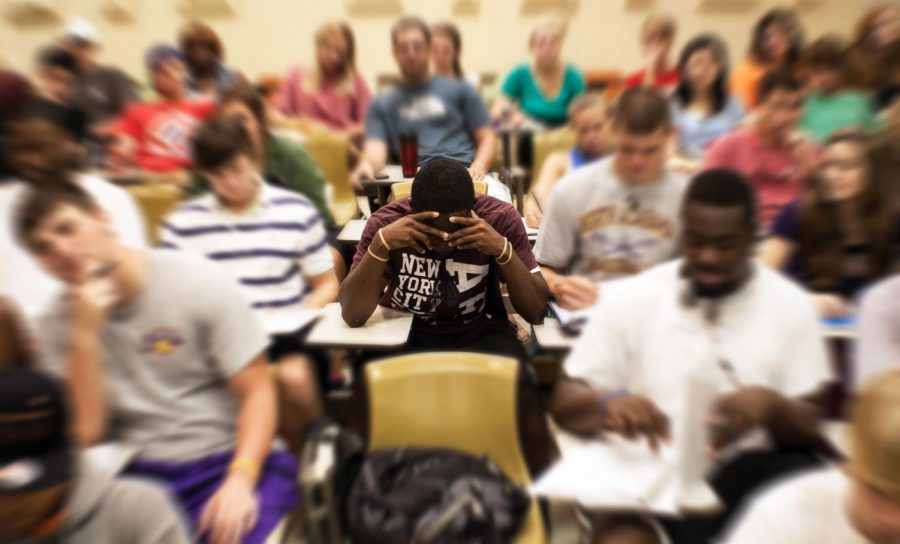Freshmen unprepared for college
September 6, 2012
According to a survey conducted last year by the non-profit standardized testing organization ACT, three out of every four college freshmen aren’t ready for collegiate-level work and should be taking at least one remedial course.
Furthermore, a 2008 report by Strong American Schools, an education advocacy group, indicated that 80 percent of college students required to take remedial level courses had maintained a high school GPA of 3.0 or higher.
“There is a national disconnect between what high schools say colleges expect and what colleges think high schools should do,” said Robert Koch, associate professor of English and director of the UNA Center for Writing Excellence.
Tammy Jacques, director of Student Engagement, said the first semester of college can be an “eye-opening experience” for many and that a “culture shock” can sometimes take hold of incoming freshmen.
“I think high schools do what they can to prepare students for college, but it’s a hard transition,” Jacques said. “Our students come from so many different backgrounds, so many different schools, so many different places that their preparation for college varies.”
Some students said high schools should try to emulate college in the classroom.
“I think it would have been beneficial for my high school to have made classes more college-like,” said sophomore Austin Oldag.
Freshman Victoria Wilson also said she wished her high school had encouraged more independent work.
“In high school, I didn’t have to study at all; I could sit in class, only half-pay attention and do fine on tests,” Wilson said.
Koch said classes aren’t the only challenging obstacles students might face in college.
“I think, in general, students try to prepare the best they can for college, but I think the challenges of collegiate life can be unexpected and many,” Koch said. “And they are not all exclusively academic in nature.
“Freedom contributes to any academic trouble. Freshmen have academic and social problems adjusting to college life, because they come to college with high school expectations. They believe what worked in high school will work in college. This is compounded by the fact that, for the first time in their lives, they’re responsible—completely and totally—for the choices they make.”
Jacques said students should get involved in extracurricular activities and groups on campus, though she cautions students to maintain a balance between academics and outside interests, lest their grades drop.
“The college experience is not a strictly academic experience,” Koch said. “The college experience is the creation of whole people—complex and nuanced academically, intellectually, socially, personally, physically and, yes, even spiritually.
“If a student comes here believing they know it all and have the answers, there’s very little we can do to help. But if a student comes in wanting to learn, wanting to try new things and understanding change is coming and has to be dealt with, they can get a lot out of the university experience.”
Despite the challenges students face in college, Wilson said she still has her reasons for loving college.
“I love it here,” Wilson said, “You can become whoever you want to be.”



![Caleb Crumpton [COURTESY OF UNA SGA]](https://theflorala.com/wp-content/uploads/2024/07/caleb-crumpton-courtesy-of-SGA-425x600.jpg)






